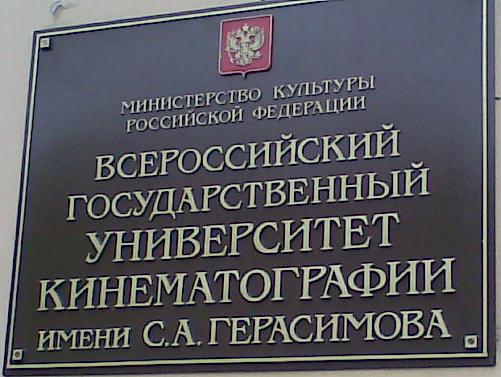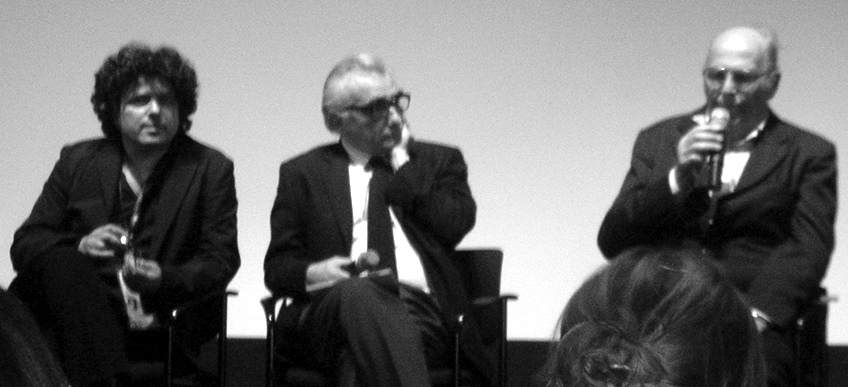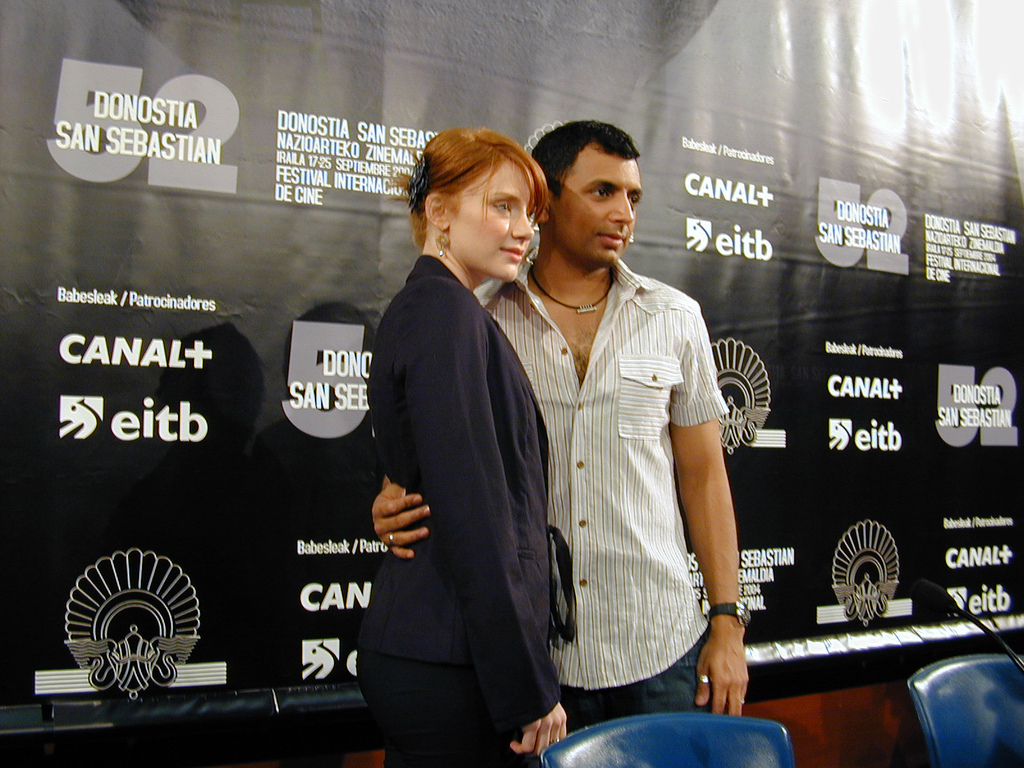|
Emil Loteanu
Emil Vladimirovich Loteanu (6 November 1936 – 18 April 2003) was a Romanian-Soviet film director born in what is now Moldova. He moved to Moscow in his early life. His best known films are '' Lăutarii'', ''Gypsies Are Found Near Heaven'', '' A Hunting Accident'' and ''Anna Pavlova''. Life and career Emil Vladimirovich Loteanu was born on 6 November 1936 in the Bessarabian village Clocuşna (now Ocniţa District, Moldova); at the time, the area was part of Greater Romania. The Loteanu ancestry has Ukrainian origin, the original name was Lototskii. His paternal ancestors were from Bukovina. After the annexation of Bessarabia to the Soviet Union, they moved to Bucharest. After the death of his father and losing contact with his mother, who had moved to Romania, he lived his early life on the streets, sleeping in warehouses and hostels. Between 1953 and 1955, he studied at the actor's faculty of the Moscow Art Theatre. In 1962, he graduated from VGIK (workshop of Grigor ... [...More Info...] [...Related Items...] OR: [Wikipedia] [Google] [Baidu] |
VGIK
The Gerasimov Institute of Cinematography (russian: Всероссийский государственный институт кинематографии имени Sergei Gerasimov (film director), С. А. Герасимова, meaning ''All-Russian State Institute of Cinematography named after S. A. Gerasimov''), a.k.a. VGIK, is a film school in Moscow, Russia. History The institute was founded in 1919 by the film director Vladimir Gardin as the Moscow Film School and is the oldest film school in the world. From 1934 to 1991 the film school was known as the All-Union State Institute of Cinematography (russian: Всероссийский (ранее Всесоюзный) государственный институт кинематографии). Film directors who have taught at the institute include Lev Kuleshov, Marlen Khutsiev, Aleksey Batalov, Sergei Eisenstein, Mikhail Romm and Vsevolod Pudovkin. Alumni include Sergei Bondarchuk, Elem Klimov, Sergei Parajanov, Alexan ... [...More Info...] [...Related Items...] OR: [Wikipedia] [Google] [Baidu] |
Martin Scorsese
Martin Charles Scorsese ( , ; born November 17, 1942) is an American film director, producer, screenwriter and actor. Scorsese emerged as one of the major figures of the New Hollywood era. He is the recipient of many major accolades, including an Academy Award, a Grammy Award, three Emmy Awards, four British Academy Film Awards, two Directors Guild of America Awards, an AFI Life Achievement Award and the Kennedy Center Honor in 2007. Five of his films have been inducted into the National Film Registry by the Library of Congress as "culturally, historically or aesthetically significant". Scorsese received an MA from New York University's Steinhardt School of Culture, Education, and Human Development in 1968. His directorial debut, '' Who's That Knocking at My Door'' (1967), was accepted into the Chicago Film Festival. In the 1970s and 1980s decades, Scorsese's films, much influenced by his Italian-American background and upbringing in New York City, center on macho- ... [...More Info...] [...Related Items...] OR: [Wikipedia] [Google] [Baidu] |
Michael Powell
Michael Latham Powell (30 September 1905 – 19 February 1990) was an English filmmaker, celebrated for his partnership with Emeric Pressburger. Through their production company The Archers, they together wrote, produced and directed a series of classic British films, notably '' The Life and Death of Colonel Blimp'' (1943), '' A Canterbury Tale'' (1944), '' I Know Where I'm Going!'' (1945), '' A Matter of Life and Death'' (1946, also called ''Stairway to Heaven''), '' Black Narcissus'' (1947), '' The Red Shoes'' (1948), and '' The Tales of Hoffmann'' (1951). His later controversial 1960 film '' Peeping Tom'', while today considered a classic, and a contender as the first " slasher", was so vilified on first release that his career was seriously damaged. Many filmmakers such as Martin Scorsese, Francis Ford Coppola and George A. Romero have cited Powell as an influence. In 1981, he received the BAFTA Academy Fellowship Award along with his partner Pressburger, the highest h ... [...More Info...] [...Related Items...] OR: [Wikipedia] [Google] [Baidu] |
Anna Pavlova
Anna Pavlovna Pavlova ( , rus, Анна Павловна Павлова ), born Anna Matveyevna Pavlova ( rus, Анна Матвеевна Павлова; – 23 January 1931), was a Russian prima ballerina of the late 19th and the early 20th centuries. She was a principal artist of the Imperial Russian Ballet and the Ballets Russes of Sergei Diaghilev. Pavlova is most recognized for her creation of the role of '' The Dying Swan'' and, with her own company, became the first ballerina to tour around the world, including performances in South America, India and Australia. Early life Anna Matveyevna Pavlova was born in the Preobrazhensky Regiment hospital, Saint Petersburg where her father, Matvey Pavlovich Pavlov, served. Some sources say that her parents married just before her birth, others—years later. Her mother, Lyubov Feodorovna Pavlova, came from peasants and worked as a laundress at the house of a Russian-Jewish banker, Lazar Polyakov, for some time. When Anna rose ... [...More Info...] [...Related Items...] OR: [Wikipedia] [Google] [Baidu] |
Biographical Film
A biographical film or biopic () is a film that dramatizes the life of a non-fictional or historically-based person or people. Such films show the life of a historical person and the central character's real name is used. They differ from docudrama films and historical drama films in that they attempt to comprehensively tell a single person's life story or at least the most historically important years of their lives. Context Biopic scholars include George F. Custen of the College of Staten Island and Dennis P. Bingham of Indiana University – Purdue University Indianapolis. Custen, in ''Bio/Pics: How Hollywood Constructed Public History'' (1992), regards the genre as having died with the Hollywood studio era, and in particular, Darryl F. Zanuck. On the other hand, Bingham's 2010 study ''Whose Lives Are They Anyway? The Biopic as Contemporary Film Genre'' shows how it perpetuates as a codified genre using many of the same tropes used in the studio era that has followed a s ... [...More Info...] [...Related Items...] OR: [Wikipedia] [Google] [Baidu] |
Anton Chekhov
Anton Pavlovich Chekhov (; 29 January 1860Old Style date 17 January. – 15 July 1904Old Style date 2 July.) was a Russian playwright and short-story writer who is considered to be one of the greatest writers of all time. His career as a playwright produced four classics, and his best short stories are held in high esteem by writers and critics."Stories ... which are among the supreme achievements in prose narrative.Vodka miniatures, belching and angry cats George Steiner's review of ''The Undiscovered Chekhov'', in ''The Observer'', 13 May 2001. Retrieved 16 February 2007. Along with Henrik Ibsen and August Strindberg, Chekhov is often referred to as one of the three seminal figures in the birth of early modernism in the theatre. Chekhov was a physician by profession. "Medicine is my lawful wife", he once said, "and literature is my mistress." Chekhov renounced the theatre after the reception of ''The Seagull'' in 1896, but the play was revived to acclaim in 18 ... [...More Info...] [...Related Items...] OR: [Wikipedia] [Google] [Baidu] |
Maxim Gorky
Alexei Maximovich Peshkov (russian: link=no, Алексе́й Макси́мович Пешко́в; – 18 June 1936), popularly known as Maxim Gorky (russian: Макси́м Го́рький, link=no), was a Russian writer and socialist political thinker and proponent. He was nominated five times for the Nobel Prize in Literature. Before his success as an author, he travelled widely across the Russian Empire changing jobs frequently, experiences which would later influence his writing. Gorky's most famous works are his early short stories, written in the 1890s ("Chelkash", " Old Izergil", and " Twenty-Six Men and a Girl"); plays '' The Philistines'' (1901), '' The Lower Depths'' (1902) and '' Children of the Sun'' (1905); a poem, "The Song of the Stormy Petrel" (1901); his autobiographical trilogy, '' My Childhood, In the World, My Universities'' (1913–1923); and a novel, '' Mother'' (1906). Gorky himself judged some of these works as failures, and ''Mother'' has be ... [...More Info...] [...Related Items...] OR: [Wikipedia] [Google] [Baidu] |
Mosfilm
Mosfilm (russian: Мосфильм, ''Mosfil’m'' ) is a film studio which is among the largest and oldest in the Russian Federation and in Europe. Founded in 1924 in the USSR as a production unit of that nation's film monopoly, its output includes most of the more widely acclaimed Soviet-era films, ranging from works by Andrei Tarkovsky and Sergei Eisenstein, to Red Westerns, to the Akira Kurosawa co-production '' Dersu Uzala'' () and the epic ''War and Peace'' (). History The Moscow film production company with studio facilities was established in November 1920 by the motion picture mogul Aleksandr Khanzhonkov ("first film factory") and I. Ermolev ("third film factory") as a unit of Goskino, the USSR's film monopoly. The first movie filmed by Mosfilm was ''On the Wings Skyward'' (directed by Boris Mikhin). In 1927, the construction of a new film studio complex began on Potylikha Street (renamed to Mosfilmovskaya Street in 1939) in Sparrow Hills of Moscow. This film ... [...More Info...] [...Related Items...] OR: [Wikipedia] [Google] [Baidu] |
San Sebastián International Film Festival
The San Sebastián International Film Festival ( SSIFF; es, Festival Internacional de San Sebastián, eu, Donostia Zinemaldia) is an annual FIAPF A category film festival held in the Spanish city of Donostia-San Sebastián in September, in the Basque Country. Since its creation in 1953 it has established itself as one of the 14 "A" category competitive festivals accredited by the FIAPF, of which it has one of the lowest budgets. It has hosted several important events of the history of cinema, such as the international premieres of ''Vertigo'', by Alfred Hitchcock (who attended the Festival) and the European premiere of '' Star Wars''. It was the first festival attended by Roman Polanski and has helped advance the professional careers of filmmakers such as Francis Ford Coppola, Bong Joon-ho and Pedro Almodóvar. José Luis Rebordinos has served as the director of the festival since 2011. History The festival was founded in 1953 with the first festival starting on Septe ... [...More Info...] [...Related Items...] OR: [Wikipedia] [Google] [Baidu] |
Eugene Doga
Eugen Doga (born 1 March 1937) is a Romanian and Russian composer from the Republic of Moldova. A creator of three ballets "Luceafărul", "Venancia", "Queen Margot", the opera "Dialogues of Love", more than 100 instrumental and choral works – symphonies, 6 quartets, "Requiem", church music, and other, plus music for 13 plays, radio shows, more than 200 movies, more than 260 songs and romances, more than 70 waltzes; he is also the author of works for children, the music for the opening and closing ceremonies of the Olympic Games in 1980 in Moscow. In Moldova, the years 2007 and 2017 (when the composer celebrated his 70th and 80th birthdays, respectively) were declared the Year of Eugen Doga. Chișinău's main pedestrianised thoroughfare has been named Eugen Doga Street in his honour. The World Intellectual Property Organization (Geneva) in recognition of his outstanding achievements in music awarded him with a special certificate in 2007. Biography Youth and education Doga ... [...More Info...] [...Related Items...] OR: [Wikipedia] [Google] [Baidu] |
Communist Party Of The Soviet Union
" Hymn of the Bolshevik Party" , headquarters = 4 Staraya Square, Moscow , general_secretary = Vladimir Lenin (first)Mikhail Gorbachev (last) , founded = , banned = , founder = Vladimir Lenin , newspaper = '' Pravda'' , position = Far-left , international = , religion = State Atheism , predecessor = Bolshevik faction of the RSDLP , successor = UCP–CPSU , youth_wing = Little OctobristsKomsomol , wing1 = Young Pioneers , wing1_title = Pioneer wing , affiliation1_title = , affiliation1 = Bloc of Communists and Non-Partisans (1936–1991) , membership = 19,487,822 (early 1989 ) , ideology = , colours = Red , country = the Soviet Union The Communist Party of the Soviet Union (CPSU),; abbreviated in Russian as or also known by various other names during its history, was the founding and ruling party of the Sovi ... [...More Info...] [...Related Items...] OR: [Wikipedia] [Google] [Baidu] |






